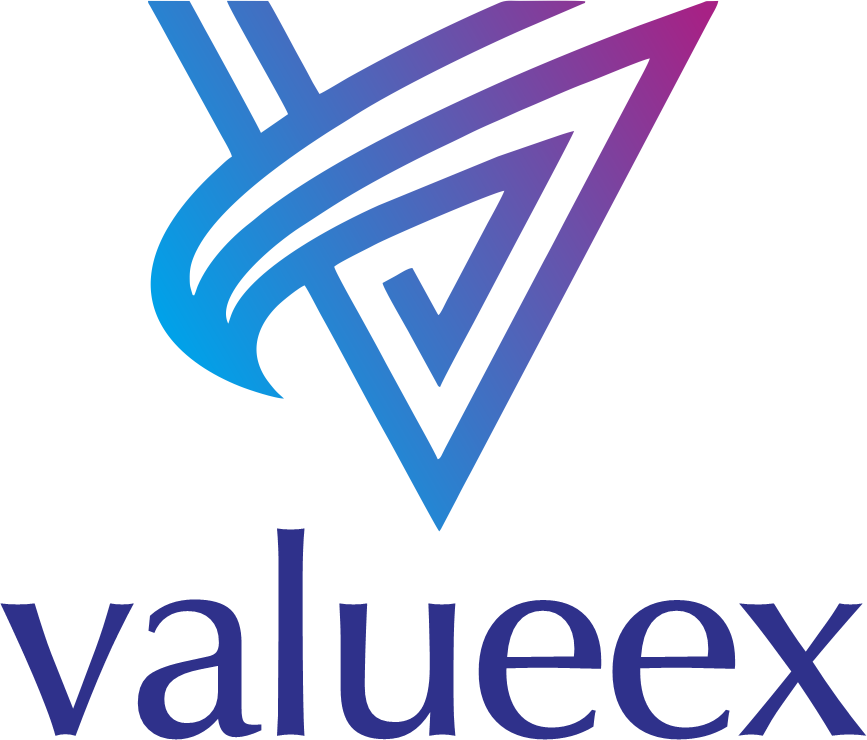Blockchain
Manta Foundation Unveils $50M EcoFund to Foster Blockchain Innovation

The Manta Foundation has launched its $50 million EcoFund to build a robust ecosystem for leading blockchain projects, as per Manta Network. This initiative demonstrates the foundation’s commitment to funding opportunities and developer support for innovative blockchain ventures.
Funding and Support Opportunities
Starting June 15th, the one-year EcoFund will offer significant financial support through its Ecosystem Grant Program, which provides early-stage projects with grants of up to $50,000. This initial funding is crucial for bringing innovative ideas to life.
Additionally, the EcoFund dedicates $35 million for direct investments in promising projects on the Manta Network. These strategic investments aim to foster high-growth ventures that align with Manta Network’s long-term objectives, promoting a collaborative and mutually beneficial environment.
Diverse Project Focus
The Manta Foundation supports a broad range of projects across sectors such as DeFi, Gaming, NFTs, and more. These initiatives are chosen for their potential to drive consumer adoption and significantly enhance the Manta Network ecosystem.
Applications for the EcoFund are accepted on a rolling basis, ensuring ongoing funding and support opportunities. The foundation prioritizes projects with robust business models and scalability, aiming to ensure the ecosystem’s financial health and sustainability.
Specialized Funding Categories
In addition to general grants, the EcoFund targets specific high-growth areas:
– AI/DePIN: Focused on using AI and Decentralized Physical Infrastructure Networks for sustainable solutions.
– Zero-Knowledge: Investments in zero-knowledge technology to boost privacy and security in the blockchain space.
– Memecoins: The Moon Mission Grant supports the development and growth of meme projects on Manta Pacific, fostering a vibrant memecoin culture.
Events and Hackathons
To further enrich the ecosystem, the Manta Foundation has allocated $5 million for online and offline events and hackathons. These events aim to attract new developers and users, fostering a culture of innovation and collaboration within the Manta Network community.
Source: blockchain.news
The post Manta Foundation Unveils $50M EcoFund to Foster Blockchain Innovation appeared first on HIPTHER Alerts.
Blockchain
QR Codes Payments Present a $67 Billion Global Market Opportunity by 2034 – PayPal, Square (Block), UnionPay International Co., Visa, and Mastercard Lead the Competition
QR Codes Payment Market
Blockchain
Blocks & Headlines: Today in Blockchain – April 30, 2025

Today’s blockchain ecosystem is defined by soaring ambitions, regulatory crosswinds, and an ever-evolving tapestry of decentralized applications. In this edition of Blocks & Headlines: Today in Blockchain – April 30, 2025, we cover five pivotal developments shaping Web3’s next chapter:
-
Telegram’s TON Factory Launch – A breakthrough in on-chain scalability.
-
EU Data-Protection Ruling Threatens Full Blockchain Histories – The fight between GDPR and immutability.
-
One Championship MMA Game Debuts on Sui – A major Web3 foray into mobile gaming.
-
U.S. Senate Eyes New Blockchain Act – Bipartisan push to regulate digital assets.
-
DMG Blockchain’s AI Data-Center Investment – Convergence of crypto mining and AI infrastructure.
Below, we deliver concise yet detailed analyses of each story, infused with expert commentary on their strategic significance. Read on to understand how these trends will influence protocol adoption, developer incentives, regulatory frameworks, and the future of decentralized networks.
1. Telegram’s TON Factory Boosts On-Chain Scalability
What happened:
Telegram’s Open Network (TON) team officially unveiled TON Factory, a novel toolkit designed to streamline the deployment and scaling of decentralized applications. Built atop TON’s sharded architecture, TON Factory enables developers to spin up isolated “factories”—subnets that can host smart contracts, NFTs, and DeFi modules—while sharing security guarantees with the main chain. According to the announcement, early tests show that each factory can process up to 15,000 transactions per second (TPS) in isolation, with near-instant finality.
Why it matters:
Scalability remains blockchain’s Achilles’ heel. TON Factory’s factory-of-subnets approach promises to lower the barrier to entry for high-throughput dApps—everything from micro-payment systems to real-time gaming. By offering elastic compute and fee-optimization mechanisms, Telegram aims to undercut legacy Layer-1 networks and attract a new generation of builders.
Opinion & Implications:
-
Developer Experience: Abstractions like preconfigured factories could accelerate time-to-market for teams lacking deep consensus expertise.
-
Network Effects: If TON’s UX outpaces rivals (e.g., Ethereum’s zk-rollups or Solana’s Turbine), we may see a migration of liquidity and talent.
-
Security Trade-Offs: Isolating factories can mitigate cross-dApp failures, but adds complexity to transaction routing and dispute resolution. Audits will be essential to validate this novel model.
Source: Cointelegraph – Telegram TON Factory Launch
2. EU Regulators Propose Deleting Entire Blockchains for GDPR
What happened:
European data-protection authorities have floated a radical interpretation of GDPR: the “right to erasure” could extend to purging entire on-chain histories containing personal data. Under this view, controllers operating within the EU must either anonymize linked data or entirely delete chain segments—potentially forcing chains to implement selective pruning or permissions.
Why it matters:
Blockchain’s immutability ethos directly clashes with GDPR’s erasure mandate. If regulators enforce selective deletion, networks may need to retrofit privacy-preserving layers (e.g., zero-knowledge proofs, chameleon hashes) or risk noncompliance fines up to 4% of global turnover.
Opinion & Implications:
-
Protocol Evolution: Expect a surge in privacy-by-design protocols that segregate PII off-chain while anchoring proofs on-chain.
-
Jurisdictional Fragmentation: Projects may geo-fence EU users or spawn EU-compliant forks—fracturing unified global ledgers.
-
Commercial Impact: Exchanges and custodians face urgent deadlines to audit on-chain data holdings and deploy erasure tools—or face hefty penalties.
Source: Daily Hodl – EU Blockchain Erasure
3. One Championship’s MMA Game Launches on Sui for iOS/Android
What happened:
One Championship, Asia’s premier martial-arts league, has partnered with Mysten Labs to release “ONE Fight Manager”—a play-to-earn mobile title powered by the Sui blockchain. Available now on iOS and Android, the game lets users train NFT fighters, compete in PvP leagues, and earn SUI tokens through ranked matches. Mysten Labs touts sub-two-second transaction finality and near-zero gas fees, enabling seamless gameplay even for on-chain microtransactions.
Why it matters:
Gaming remains the killer app for mass blockchain adoption. By leveraging Sui’s Move VM and object-centric model, ONE Fight Manager addresses two critical pain points: UX friction and cost barriers. Real-time, feeless interactions are vital to onboard traditional gamers accustomed to instant feedback loops.
Opinion & Implications:
-
User Acquisition: High-profile IP like One Championship can drive millions of installs—and funnel new users into the broader Sui ecosystem.
-
Economics & Tokenomics: Careful tuning of token emission and NFT scarcity will determine whether the game sustains long-term engagement or succumbs to “play-to-earn” collapse.
-
Cross-Chain Synergy: Success here may inspire similar partnerships on Aptos, Ethereum, or emerging Layer-1s, intensifying competition for flagship gaming titles.
Source: Decrypt – ONE Championship Sui Game
4. Ohio Senator Leads Push for U.S. Blockchain Act
What happened:
Senator J.D. Kerns (R-OH) has introduced the Blockchain Innovation and Consumer Protection Act, aiming to create a federal framework for digital-asset oversight. Key provisions include:
-
Defined Classifications: Differentiating between payment tokens, security tokens, and utility tokens.
-
Licensing Regime: Establishing a “Digital Asset Services Commission” to grant interstate licenses for exchanges and custodians.
-
Consumer Safeguards: Mandatory proof of reserves, clear disclosure requirements, and dispute-resolution protocols.
Why it matters:
After years of fragmented state laws and agency turf wars, this Act represents Congress’s first cohesive effort to legislate blockchain. By preempting state-level divergence, it could streamline compliance for businesses—provided it balances innovation with investor protection.
Opinion & Implications:
-
Regulatory Clarity: Clear definitions can foster institutional entry, reducing legal ambiguity that stifles corporate treasuries from adopting crypto.
-
Unintended Consequences: Overly stringent licensing could entrench incumbents and erect high barriers for startups.
-
Global Competitiveness: U.S. leadership in blockchain law may influence other jurisdictions—critical as Asia and Europe race to craft their own regulatory regimes.
Source: The Street – Blockchain Act Proposal
5. DMG Blockchain Solutions Invests in 2MW of AI Data-Center Gear
What happened:
DMG Blockchain Solutions Inc. has announced the acquisition of two megawatts of high-density GPU infrastructure, repurposed for both crypto-mining and AI-model training workloads. Housed in a new Quebec data center, the multi-use clusters will dynamically allocate capacity between proof-of-work operations and commercial AI clients—leveraging off-peak pricing to optimize ROI.
Why it matters:
The convergence of crypto-mining and AI training infrastructure underscores growing synergies between two of the most compute-hungry industries. By offering GPUs for rent during mining downtimes, DMG anticipates 30% higher utilization rates compared to mono-purpose facilities.
Opinion & Implications:
-
Revenue Diversification: Dual-use data centers can hedge against crypto price swings and tap into booming AI-as-a-service demand.
-
Energy Efficiency: High-efficiency GPUs paired with Quebec’s hydroelectric power may set new benchmarks for sustainable compute.
-
Competitive Landscape: Other mining operators may follow suit, catalyzing a wave of AI-crypto hybrid hosting providers.
Source: GlobeNewswire – DMG AI Infrastructure Purchase
Conclusion
April 30, 2025, illuminated blockchain’s boundless dynamism: scalability breakthroughs at Telegram’s TON Factory; privacy versus immutability in the EU’s GDPR debate; mass-market gaming on Sui; legislative clarity from Capitol Hill; and the AI-crypto infrastructure nexus in Quebec. These stories reveal an industry simultaneously innovating at the protocol layer, grappling with regulation, and exploring cross-sector partnerships. For developers, investors, and policymakers alike, the imperative is clear: build resilient architectures that anticipate regulatory shifts, prioritize user experience, and harness synergies across emerging technologies. Stay tuned to Blocks & Headlines tomorrow for your next daily briefing on the pulse of blockchain’s evolving frontier.
The post Blocks & Headlines: Today in Blockchain – April 30, 2025 appeared first on News, Events, Advertising Options.
Blockchain
From Sydney to the World – Valueex (VUEE) Exchange Announces Entry into the U.S. Market
-

 Blockchain6 days ago
Blockchain6 days agoBlocks & Headlines: Today in Blockchain – April 25, 2025 | BitNile, Dutch Blockchain Week, Citigroup, Philippine Blockchain Week, D.O.G.E Foundation
-

 Blockchain7 days ago
Blockchain7 days agoBlaqclouds Board Approves 30-Day Revenue Acceleration and Ecosystem Monetization Plan
-

 Blockchain7 days ago
Blockchain7 days agoBlocks & Headlines: Today in Blockchain – April 24, 2025 (Decrypt, CoinDesk, Cointelegraph, 80 Level, UNDP/BGA)
-

 Blockchain Press Releases6 days ago
Blockchain Press Releases6 days agoBybit Exchange Gold & FX Trading Hits All-Time-High As Gold Prices Soar
-

 Blockchain Press Releases3 days ago
Blockchain Press Releases3 days agoBTC Pricing Alert: Bitcoin Rebounds as Trump’s Trade War Comments Ignite Market Rally – Bybit x Block Scholes Report
-
Blockchain2 days ago
PFM Disrupts Wealth Management in 2025: Earn Digital Assets Risk-Free with Zero Fees
-

 Blockchain6 days ago
Blockchain6 days agoOv Finance Upgrades Blockchain Infrastructure to Deliver Faster, Safer Digital Asset Trading
-

 Blockchain6 days ago
Blockchain6 days agoChameleon Finance Launches Green Finance Initiative to Advance Sustainable Digital Asset Infrastructure





























